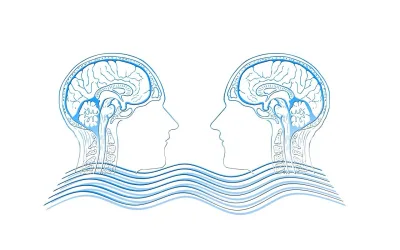Damián Ruiz
The behavioral ritual, in the patient with OCD (obsessive-compulsive disorder), is usually linked to a superstition, that is, to an irrational thought, for example: “I’m still contaminated,” “I can contaminate,” “I may have harmed someone,” “I need to check again if I have turned off the stove burners because otherwise the house might burn down”…
And that implies, in some cases, minutes, in others, hours of repetition.
But what is happening at a deeper level?
The person is trapped in an intense fear that generates profound anxiety, and that anxiety is channeled in an obsessive and repetitive way through rituals that can last a long time.
But where does that fear come from?
I make a parenthesis: I usually say that, among many other classifications in which human beings can be labeled, there is one that could separate them into two:
Those who live to achieve their desires.
Those who live to prevent their fears from happening.
In Freudian terms, we could speak of life drive (Eros) and death drive (Thanatos).
And how does someone, like people with OCD, develop a death drive?
Because of the experiences lived at a certain moment in their life.
I always point out that there is probably a genetic predisposition in mental illnesses, but “genetics predisposes but does not necessarily condemn,” which means that perhaps there is the possibility that with an adequate lifestyle one may avoid suffering from them.
But let us return to the question. If in childhood, adolescence, or even in other moments of life, circumstances have been suffered that forced a person to “protect themselves,” for example: school bullying, psychological, physical, sexual abuse, ambivalent parental bonds, isolation, excessive work, emotional coldness, etc. It is very possible that in the psyche of that person (child, adolescent, …) a preventive attitude was installed, of excessive prudence, even fear, to prevent that from happening again. It is also likely that at any sign of discomfort from the environment, the individual felt guilty. For example, in a toxic family environment where the father psychologically abuses the mother (or vice versa) and the son or daughter tries to go unnoticed so as not to trigger a negative reaction from the father. If suddenly the situation escalates, it is possible that a strong sense of guilt appears.
So, if the traumatic experiences have not been worked through and integrated, there is the possibility that a message of alert has been encrypted at the psychic level, like a kind of psychic virus, which has enough power to come to control the person’s life, monitoring their actions and making the recurrent anxiety channel through repetitions.
And how do we deactivate this “psychic virus”?
Through the integration of lived circumstances, the recovery of all the healthy aspects of the personality, including those that refer to aptitudes, talents, and vocations, and the defocusing of the symptom to focus on “desire.”
The desire that underlies the nature of each individual, the connection with Eros, and that which motivates us, makes us happy, even passionate, and which the patient with OCD has sacrificed to prevent anything negative from happening in their life.
That is, a combination of deep work and action in real life.
Obsessive repetition, whether mental or behavioral, only indicates that there is a need to integrate repressed aspects, to dare to confront the fear of being oneself, and to move into action.
OCD (obsessive-compulsive disorder) is a symptom, and the symptom should not be confronted directly, but eliminated through psychic strengthening until it no longer has any force.
Damián Ruiz
www.ipitia.com
Barcelona, October 2, 2025





